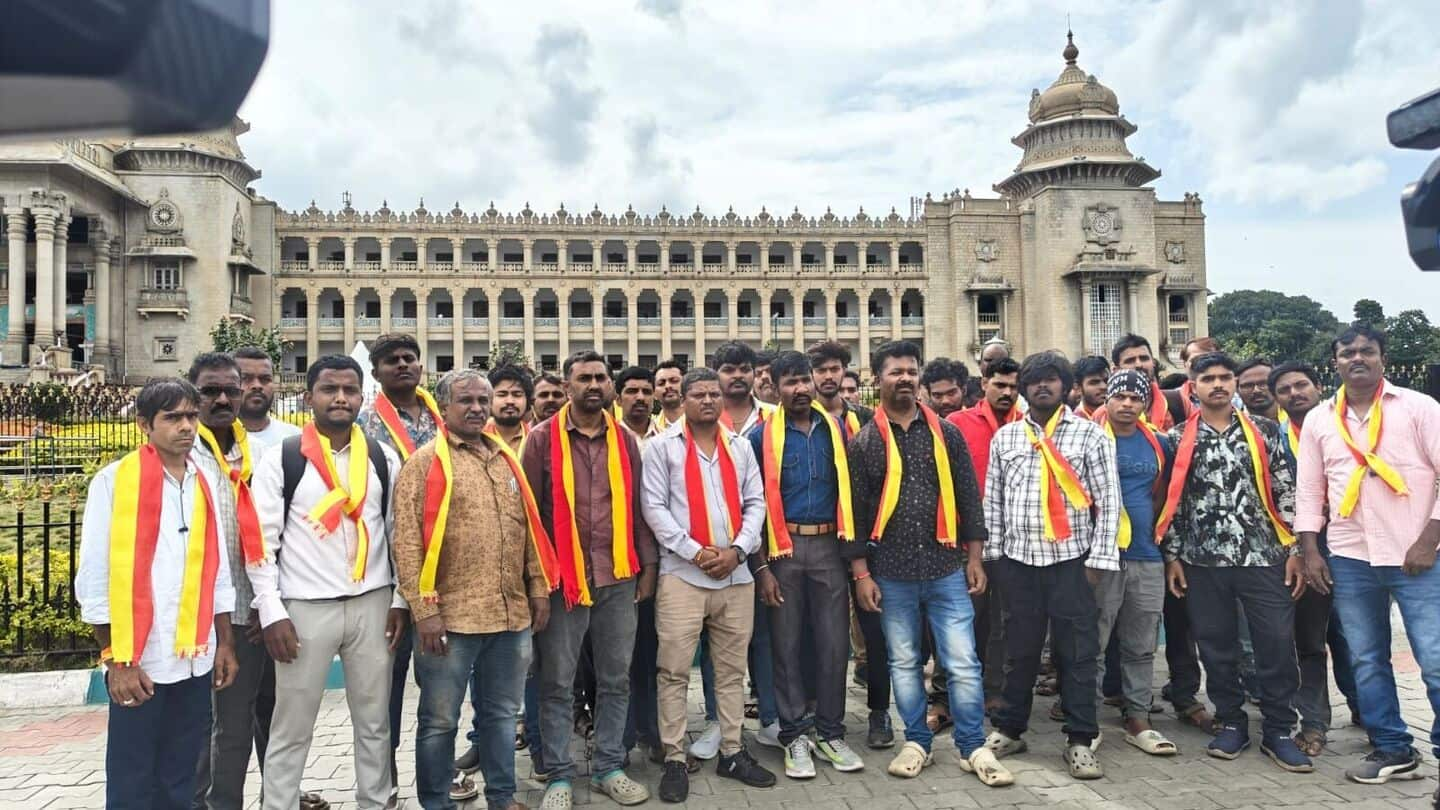
Karnataka bike taxi ban: Riders protest, threaten hunger strike
What's the story
The Bike Taxi Welfare Association in Karnataka has staged a hunger protest on Sunday, demanding the lifting of the ban on bike taxis in the state. The protests were held across several cities, including Bengaluru, Mysuru, Mandya, Davangere, and Ramanagara. The association has also written an open letter to Chief Minister Siddaramaiah seeking an inclusive policy framework for their profession.
Suspension details
Bike taxi services were suspended across Karnataka on June 16
The protests come after app-based bike taxi services were suspended across Karnataka on June 16. This was after the Karnataka High Court refused to stay an earlier order suspending such operations unless the state government notifies relevant guidelines under the Motor Vehicles Act. The court had earlier directed bike taxi operators to stop services within six weeks, a deadline that was later extended to June 15.
Riders' plea
'Some members have even been forced to beg...'
In their letter to CM Siddaramaiah, the riders expressed desperation and threatened an indefinite hunger strike if their voices continue to be ignored. They said many riders have been left without work or alternatives, pushing them into extreme hardship. Some members have even been forced to beg on the streets to feed their families.
Economic impact
Nearly 80% of the riders are local Kannadigas
The association also highlighted that nearly 80% of the riders are local Kannadigas from modest backgrounds. They include students, single mothers, homemakers, and former migrant workers who have returned to contribute meaningfully to the state. The flexibility offered by this work has empowered many in areas where other livelihood options are limited.
Policy request
Demand equal treatment under a clear, inclusive policy framework
The association has also expressed frustration over what they call unequal treatment of their profession. They pointed out that while two-wheelers are allowed for food and parcel delivery under white number plates, those providing passenger rides on similar vehicles face penalties and harassment. They demand equal treatment under a clear, inclusive policy framework and readiness to comply with all guidelines in exchange for clarity and dignity in earning a livelihood.